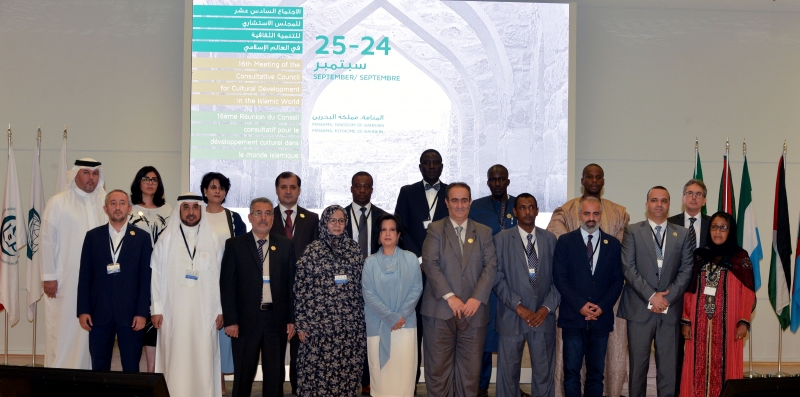Meeting focuses on strategies to preserve Islamic culture
Strategies to preserve the Islamic culture were discussed at the 16th meeting of the Consultative Council for Cultural Development, which was hosted by the Bahrain Antiquities and Culture Authority (BACA).
The meeting was organised by the Islamic Educational, Scientific and Cultural Organisation (ISESCO) along with the Organisation of Islamic Cooperation. The two-day meeting comes as a part of the celebration of ‘Muharraq, the capital of Islamic culture for the year 2018’ for the Arab region as well as a preparation meeting for the Extraordinary Islamic Conference of Culture Ministers which is to be held in November this year.
BACA President Shaikha Mai bint Mohammed Al Khalifa, while addressing the guests emphasized on the importance of the conference and the need to gather the Arab and Islamic world in order to preserve the Islamic culture. “Our pride in our historical and geographical identity must be translated into visions and achievements on the ground and we are calling out to all the Islamic countries to support the Muharraq initiative as the capital of Islamic culture, which was recently launched at UNESCO headquarters in Paris and to further dedicate an international day of Islamic art.
“We also invite the countries to be part of the opening of the Pearl Road Visitor Centre, which will be inaugurated in November in conjunction with the meeting for the Extraordinary Islamic Conference of Culture Ministers which will also be held in November under the patronage of His Majesty King Hamad bin Isa Al Khalifa.” The Director-General of the OIC’s Cultural and Social and Family Affairs, Nehla Ahmed, told Tribune, “We appreciate the efforts of all Islamic countries for preserving the culture. We also call upon countries to implement the cultural strategies of the Islamic World.
“We are glad that Bahrain is proffering significance to culture and is hosting the Extraordinary Islamic Conference of Culture Ministers, as Bahrain is well known for its balance between tradition and modernity.”
Related Posts

